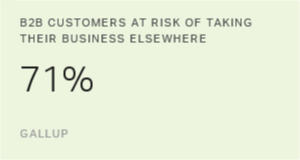G-20 leaders agreed last year to bring over 100 million women into the labor force by 2025. Digital financial services are instrumental in achieving this goal because they increase women's financial autonomy, support women's participation in the labor force and improve the performance of their businesses.
A new report, "Digital Financial Solutions to Advance Women's Economic Participation," outlines the role of digital financial services in improving women's economic participation, the challenges of increasing women's access to digital financial services and the opportunities that governments and other sectors have to foster an inclusive global economy in which digital financial services are widely available to everyone, especially women.
For example, digital financial services can boost economic participation for the more than 2 billion people worldwide who currently lack access to formal financial services. Most are women, who don't have bank accounts due to several reasons: the high cost of opening or operating an account, inaccessible location of the bank branch or a lack of government-issued identification documents required to open an account. Digital financial services can help women overcome these challenges.

First and foremost, digital financial services allow women to avoid traveling to faraway bank branches and instead bank from the convenience of their homes or workplaces. For example, women in rural Malawi and Nigeria have started using mobile phones to make deposits and withdrawals through a network of agents. They find it convenient, pocket-friendly and time-saving. For female farmers in Niger, mobile money transfers have improved their financial autonomy and decision-making capacity because the m-transfers are less noticeable to other family members. The increased privacy and control help them invest in their businesses, earn higher returns and improve their labor-force participation.
The benefits of digital financial inclusion provide a powerful basis for governments, businesses, financial services companies, development organizations and donors to act. For instance, governments can digitize their own wage and government-transfer payments to women to drive financial inclusion, advance customer protection frameworks to help protect women with low financial literacy, and reform discriminatory laws that harshly affect women, such as restrictions on women's inheritance and land ownership.
There is also a role in this for the private and financial sectors. Businesses can digitize their wage payments to female workers and suppliers, allow female customers to make digital payments, and improve customer support to make it easier for women to use digital financial services. The financial sector can develop alternative credit-scoring models to address the reality that many women lack a history of formal financial transactions, and can design products and services to meet women's needs and preferences.
